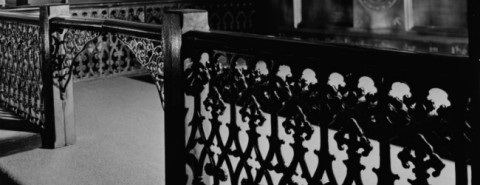Pastoral sabotage

Not until reading Wesley Granberg-Michaelson’s article ("Stealing Jesus") had I contemplated connecting the phrases “stealing Jesus” and “ecclesiastical disobedience” with eucharistic fellowship. Granberg-Michaelson stirred up a memory of an ecclesiastical transgression in my own past.
In the early 1980s, while serving as student pastor of a congregation, I was suddenly in charge one weekend. The pastor had to be out of town, leaving me responsible for all Sunday duties. The congregation had a long-standing practice of collecting registration cards as people stepped forward for the Eucharist. Using a small, unsharpened pew pencil, each worshiper filled out a card noting that they were participating in communion and handed it to the usher before proceeding to the bread and wine.
This ritual always reminded me of an amusement park attendant collecting admission tickets for the Skycoaster ride, though the Lord’s Supper has never been known for attracting thrill seekers. I failed to see any benefit to this way of registering for the sacrament, except that it justified the employment of the woman who recorded all the names in a book. God would not have invented the word communicant if we weren’t supposed to take attendance, right?





